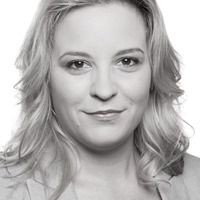Ana Pirinska (31) studied Political Science and Eurasian Studies at Sofia University in Bulgaria and MGIMO in Russia. She has been active in the Bulgarian Socialist Party for many years while also working in journalism and project management.
In March this year, she decided to run as a candidate for a seat in the National Parliament. Though unfortunately not successful, this experience motivated her even more to stay active in the political life.
On March 26th, Parliamentary early elections were held in Bulgaria because Prime Minister Boyko Borissov resigned. What lead to this?
The party of former Prime Minister Borissov named GERB (Citizens for European Development of Bulgaria) resigned due to their loss at the presidential elections in early November last year. The circumstances around this resignation remain unclear the main question being why he decided to link the results from the presidential election to the future of his government. It was pretty clear back then and even more so now that preliminary parliamentary elections would not solve the Bulgarian political puzzle. The March 26th elections did not produce a party with enough votes to form a stable government. The constitution obliges the President to offer the biggest opposition party the opportunity to form a government. If this fails, this “mission” is offered to the second largest, then the third, etc. Since GERB gained the most votes, it is up to them to try to form a government.
Right now, the only option for a government seems to be a coalition of GERB and the United Patriots (3 far-right nationalist parties). GERB’s partners in the EU are not happy with this. However, considering that Bulgaria will be President of the Council of the EU for the first half of 2018, this seems like the only option for a government that should last until at least mid-2018. All in all, the majority of Bulgarians feel as though this election just took us back to where we started.
It seems that the majority of parties in Bulgaria are less than 10 years old, what do you think is the reason for this?
Currently, there are more than 350 parties registered in Bulgaria. For a country with a population of around 7 million people, this is absurd! Obviously one should not deprive citizens of actively engaging in political life, but only after party formations have covered some basic criteria such as number of members, financial transparency, etc. One of the main reason for the creation of so many parties is the desire to receive the state subsidy available to parties providing they managed to collect at least 1% of the popular vote. This is unfortunate, but the reality.
What would you say are the biggest challenges regarding political life in Bulgaria?
Not unlike many other countries, roughly half of the voters do not engage in elections since there is broad feeling that voting will not lead to real change. Deep-rooted social issues are insufficiently covered by the media and there are also serious concerns regarding electoral fraud and the level of fairness of elections.
Bulgaria has been in the EU for 10 years now. How do citizens regard this membership and how has it affected its relations to the East?
In general the majority of Bulgarians are pro-European but it is also true that Brussels bureaucracy and unilateral decisions have made the European project increasingly difficult to be defended. The issue that bothers me personally is the EU’s inability to provide a strong perspective for shared sustainable development. For example, there is the Cooperation and Verification Mechanism for Bulgaria and Romania which aims to monitor judicial system reforms and the fight against corruption. Over time, this has turned into an “internal political weapon” used by the majority of parties to point fingers at their predecessors.
Brussels could change this mechanism and turn it into a functioning system for control and transparency. Otherwise, we both lose – Bulgaria stays corrupt and unreformed, and the EU remains the distant stepfather who has no interest in actual improvement. As for our long-standing relations with Russia, the constant pro- and anti- talk in that matter is harmful and counterproductive. We should really have pragmatic and fair relations with both Brussels and Moscow.
This interview was published on FOMOSO before.




